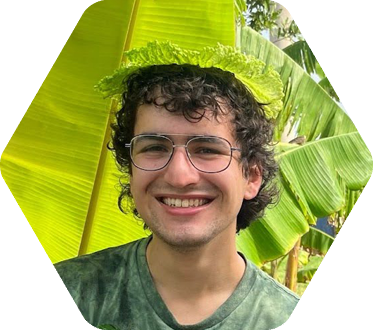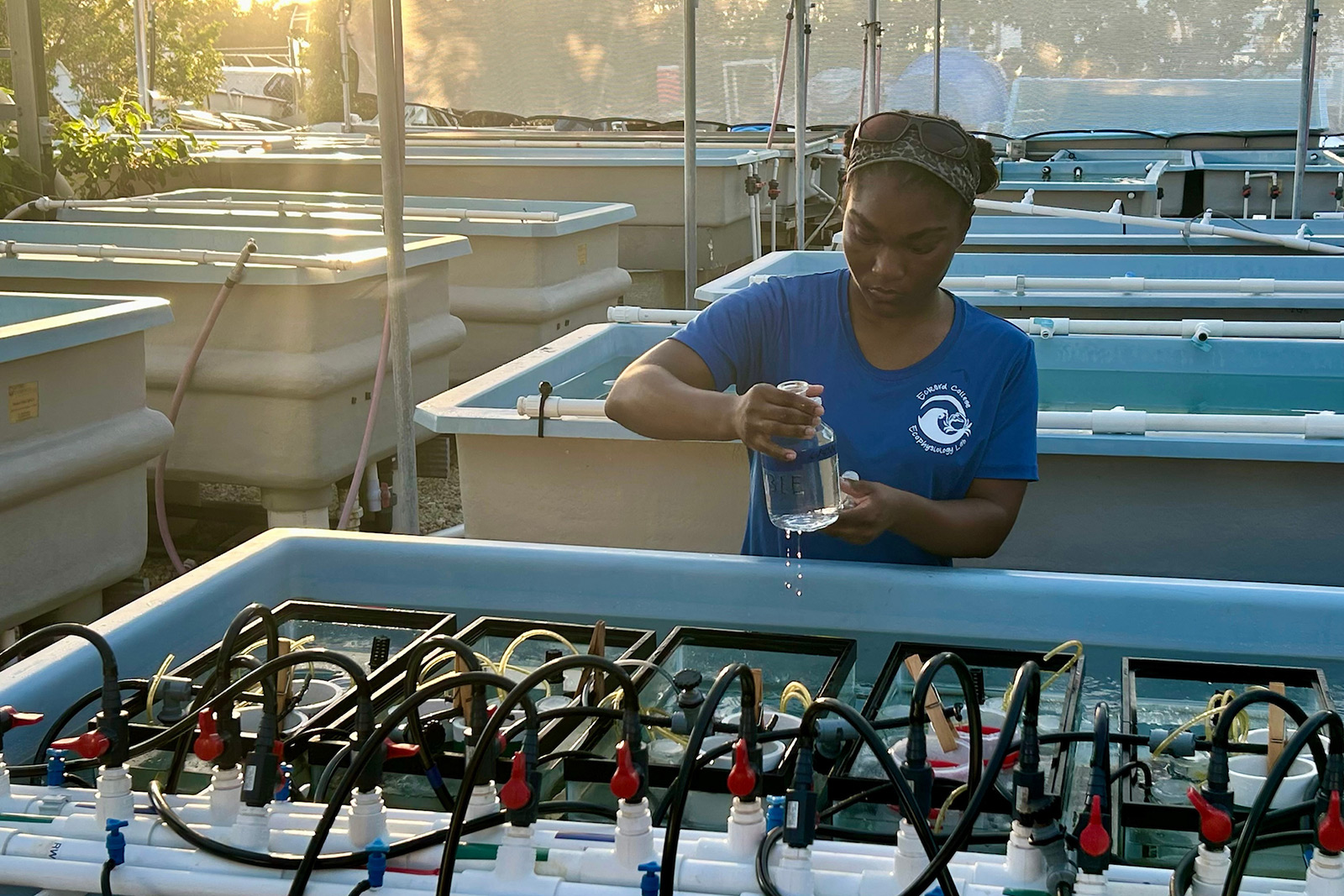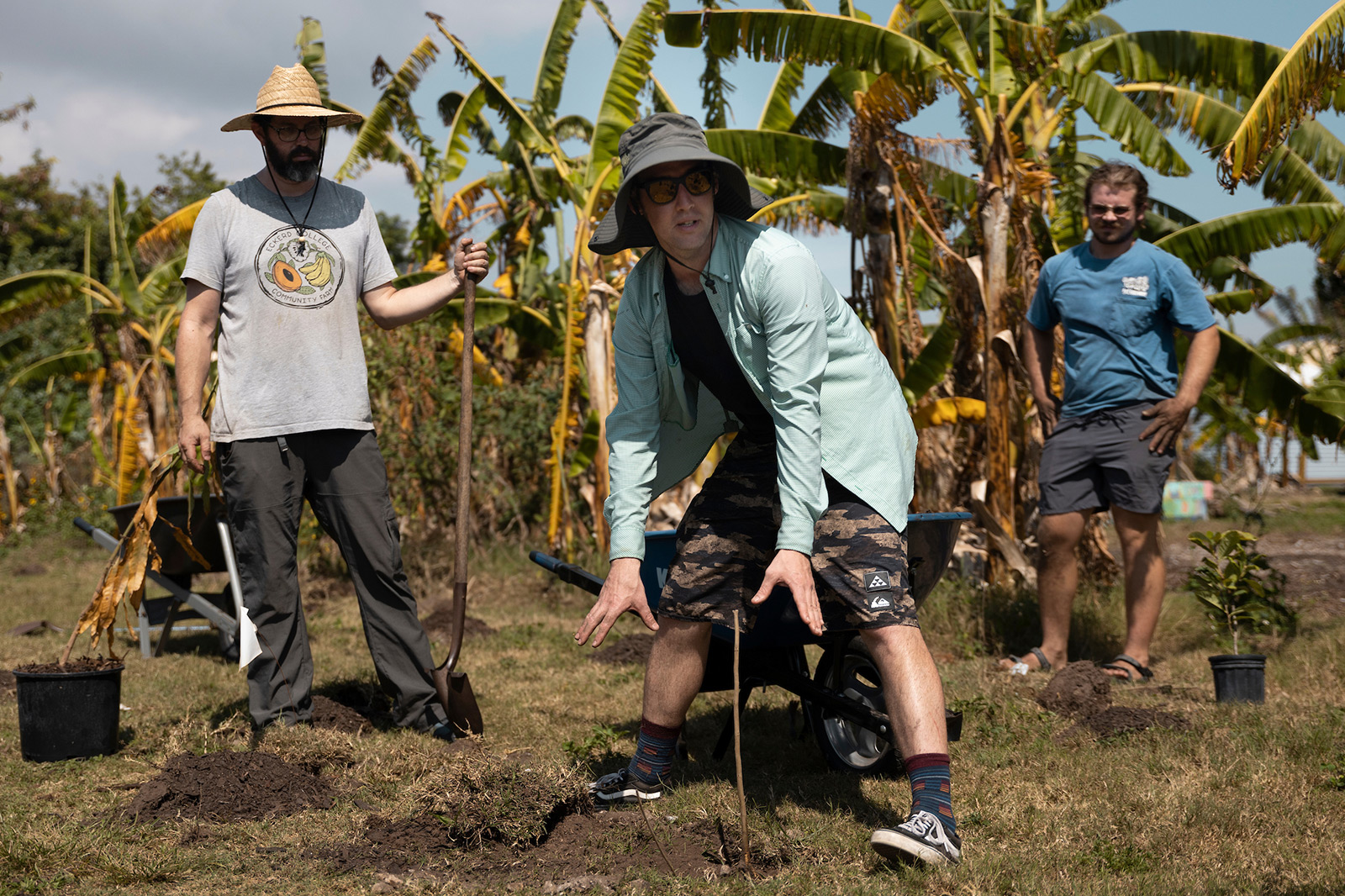Major in a discipline, minor in a problem
Solving problems in a rapidly changing and complex world requires the ability to make sense of ideas and information drawn from many different fields.
Interdisciplinary Problem Minors (IPMs) empower you to tackle complex, real-world problems by weaving together insights from science, arts, humanities, and social sciences.
Start with Ways of Knowing—our core course that trains you to see problems through different lenses—then build your unique path with courses from across the curriculum.

In their own words
“During a conversation with a professor I realized how food-related courses were key to my interest in all of my fields of study from environmental issues, anthropology, foreign language, and sustainability. Going forward I am entering a career in sustainable food equity. The lessons I learned from this minor and capstone course have paved the way for my future in this field.”
—Christopher Schweighofer ’25
Why study interdisciplinary problems at Eckerd
- Learn how to work with experts outside of your area of specialization
- Real world problems don’t fit within the boundaries of a single major
- Fulfill your general education requirements while also getting a minor in a problem that interests you
- Get credit for internships that will offer work experience connected to your minor
Course descriptions and catalog details
Interdisciplinary Problem Minor
The world is full of problems of widespread current concern and urgency that do not easily fit within the boundaries of traditional disciplines or majors. Classes that explore such issues can be found throughout the curriculum, and are often taught by faculty with very different training, employing different methods in their teaching and research. Students who wish to engage in a program of study that focuses on one of these concerns are encouraged to complete the Interdisciplinary Problem Minor, which consists of a core interdisciplinary studies course (HU200H: Ways of Knowing) and four courses from an approved list for a specific problem minor (listed below). An internship course for credit that is connected to the problem may also count towards the minor with approval from the discipline coordinator. No more than one of these may come from a Winter Term or other short term. While courses in the minor may satisfy general education requirements, no more than two of these courses may count towards major or disciplinary minor requirements.
Students who complete the requirements for the Interdisciplinary Problem Minor will have the minor designated on their transcript with the title of a specific problem from the list of problem minors below. Given that they will have completed the Ways of Knowing course for their first minor, students who wish to complete a second Interdisciplinary Problem Minor may do so by completing five additional courses from a different problem cluster.
Note that problems available for study through the Interdisciplinary Problem Minor may change. Consult the latest course catalog or the minor website for an updated list. Students who have begun work on a minor that is no longer listed as available should consult with the discipline coordinator for the Interdisciplinary Problem Minor to make a plan to complete their program.
Structure of the Interdisciplinary Problem Minor
- Four courses related to a specific problem (listed below), at least one of which must be at the 300-level or above. An internship course for credit that is connected to the problem may also count towards the minor with approval from the discipline coordinator.
- HU200H: Ways of Knowing.
- Students who wish to complete a second Interdisciplinary Problem Minor should take five courses from the approved list for the second problem minor.
Interdisciplinary Problem Minors
A. Technology and HumanityOur lives have been impacted in countless ways, for better and for worse, by the rise of digitally networked technologies...
Core Course (required):- HU200H Ways of Knowing
- CM221A: Media and Society
- CM335: Dis/Engaging the Digital (Prereq: CM221A)
- CM314A: Critical Studies in New Media
- CM360A: Media Ethics
- HP230E: Human and Post-Human Environments
- HU213H: House and Home: Rethinking Identity (Summer only)
- MK375: Digital Marketing
- PL240H: Philosophy of Technology
- PL309: Topics in Philosophy of Mind
- RE201H: Understanding Religion
- RE214H: Cults, Communes, Conspiracies
- RE231H: New Technology, New Religions
- RE314H: Religion and Cinema: Techpocalypse
- RE330H: Science and Religion
- SO125S: Social Problems
- WG205H: Memories of Gender and Identity (Summer only)
We are consumed with consuming (and not consuming) food...
Core Course (required):- HU200H Ways of Knowing
- AN206G: Cultural Anthropology
- AN210: Sustainable Development
- CW204A: Intro Creative Nonfiction
- CW205A: Introduction to Journalism
- EA316E: Asian Environmental Issues (Spring Into Summer only)
- ES228: Food and Sustainability
- ES328: Food Movements (Prereq: ES172)
- HU102H: Writing About - Food
- HU225H: Health Humanities
- LII231H: Food/Lit/Culture London
- RE101H: Exploring Religion: Animals
- RE201H: Understanding Religion
- RE312H: Feasts and Fasts: Religion, Food, Eating
- RE336G: History of Yoga
- SO125S: Social Problems
- WT1: Archaeology of Food
- WT1A: Toasting, Roasting and Boasting
- WT1N: Chemistry of Candy
- WT1N: Microbial Meals
This interdisciplinary problem minor is designed to equip students to understand, communicate about, and respond to climate change...
Core Courses (both of the following):- HU200H Ways of Knowing
- ES172 Introduction to Environmental Studies
- EC368 Climate Change, Trade, Econ. Developmentt (Prereq: EC 280S, EC 281S or EC 282S)
- ES225 Environmental and Climate Justice
- ES475 Climate Change Communication (Prereq: ES 172 or ES 317 and Junior or Senior class standing)
- WT Climate Futures Fiction/Film
- WT Corals, Climate, and Communication
- WT Climate Change: How and Now
- RE281E Religion and Climate Change
- BI371 Restoration Ecology
- CO200E Writing the Environment
- EC373 Natural Resource Economics
- EC374 Environmental Economics
- ES211 Introduction to Earth Sciences
- ES280 Environmental Education
- ES375 Environmental Communication
- FI319E Environmental Film Colloquium
- FI304E Film, Media, and Environment
- HI253E Environmental History
- HI254 European Environmental History
- HI316E Empire and the Environment
- HP201 Science Communication
- HP210E Science, Ethics, and the Common Good
- LI106E Southern Literature and the Environment
- MK213 Marketing for a Sustainable World
- MS101N Geological Oceanography
- MS102N Biological Oceanography
- MS243 Earth Systems History
- MS322 Coral Reefs
- MS326 Navigation of Marine Organisms
- PL243E Environmental Ethics
- PL310E Ideas of Nature
- RE212H Apocalypse, Utopia, Dystopia
- RE214H Cults, Communes, Conspiracies
- RE283E Nature Religion
- RE330H Science and Religion
- TH272E Performance and the Environment
An Interdisciplinary Approach to Moral Problem-Solving...
Core Courses (both of the following):- HU200H Ways of Knowing
- PL104H Introduction to Ethics
- CM360A Media Ethics
- HD386 Ethical Issues
in Human Development (Prereq: HD210) - HP210E Scientific Ethics and the Common Good
- HU225H Health Humanities
- LI240H Bioethics and the Literary Imagination
- MN342S Ethics in Management and Entrepreneurship
- MN242S Ethics of Management: Theory and Practice
- PL243E Environmental Ethics
- PL204H Animal Ethics
- PL235H Happiness and Wisdom
- PL201H Art of Living
- PL220H Existentialism
- RE201H Understanding Religion
- RE220G Engaged Buddhism
Problems to consider
- How can we act ethically in complex situations?
- How does food shape identity?
- How do technologies affect us?
- Why is it so hard to convince people to do something about climate change?
Coordinators

Nathan Andersen, Ph.D.
Professor of Philosophy

Charles McCrary
Assistant Professor of Religious Studies










